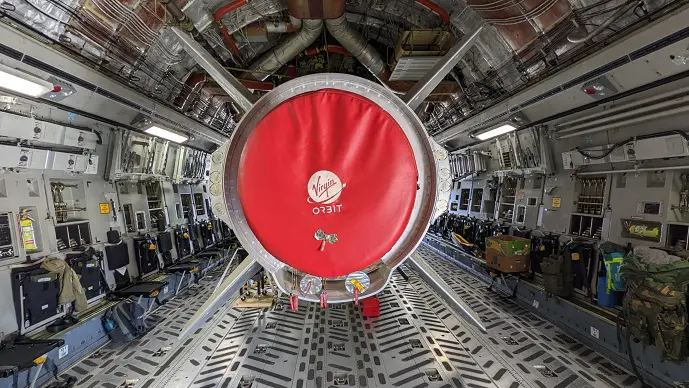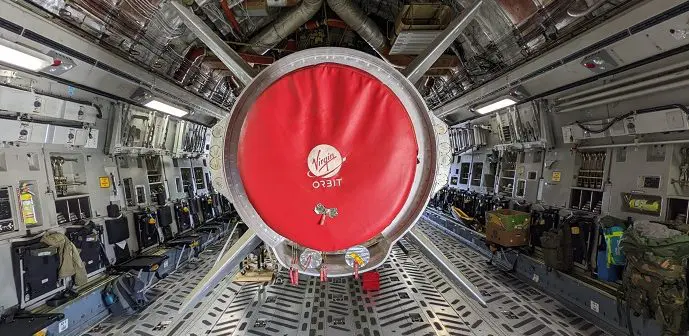
Written by Staff Writer.
An ambitious plan to launch the first satellites into space from Western Europe failed on January 10, 2023, after the rocket carrying nine satellites failed to reach orbit, instead burning up on re-entry over the Atlantic and destroying the payload.
Virgin Orbit’s modified Boeing 747, dubbed Cosmic Girl, took off from Spaceport Cornwell (formerly Newquay Airport) in southwestern England on Monday afternoon. The aircraft was carrying an all-liquid-fuelled air-launched orbital rocket called Launcher One, which was attached to the underside of the aircraft’s left wing.
The rocket successfully deployed from the airborne launch pad, ignited its engines, and reached hypersonic speeds and space before continuing through to stage separation and ignition of the second stage.
“At some point during the firing of the rocket’s second stage engine, with the rocket travelling at a speed of more than 11,000 miles (17,700 kilometres) per hour, the system experienced an anomaly, ending the mission prematurely,” reads a Virgin Orbit statement. “Out of five LauncherOne missions carrying payloads for private companies and governmental agencies, this is the first to fall short of delivering its payloads to their precise target orbit.”
The first four deployments carrying a combined 33 commercial satellites departed from California’s Mojave Air and Space Port between May 2020 and July 2022. The fifth deployment, backed by the UK Space Agency, was intended to demonstrate that the UK and Europe also had the capacity to launch commercial rockets.
“Launching a spacecraft always carries considerable risks,” said Matt Archer, director of commercial spaceflight at the UK Space Agency. “We remain committed to becoming the leading provider of small commercial satellite launches in Europe by 2030, with vertical launches planned from Scotland.”
In its statement, Virgin Orbit said a full investigation and mission assurance process would take place. However, a spokesperson later told media that the rocket never reached orbit, and the second stage, which carried the satellites, burnt up upon re-entry off Africa’s west coast. Cosmic Girl and her crew all safely returned to Cornwell.
The nine satellites lost belonged to seven customers, including two satellites belonging to the UK’s Ministry of Defence, two satellites belonging to British satellite maker In-Space Missions, and single satellites each belonging to Belgian space security company Rhea; Scottish company AAC Clyde Space; the Omani government; and the Polish government.
“Our two satellites would have been two of the most complex and magnificent satellites in the night sky,” In-Space Mission’s Doug Liddle told the New York Times. “To have lost those is very upsetting for everyone.”
The failure of the Virgin Orbit mission is the third significant blow to the European space industry in 12 months. The European Space Agency forfeited substantial business when Russia’s Soyuz rocket launches ceased after that country’s invasion of Ukraine. More recently, a Vega-C rocket operated by Arianespace experienced what was described as a catastrophic anomaly minutes after its launch from the Kourou space base in French Guiana in December. The rocket self-destructed, resulting in the loss of two commercial satellites.





